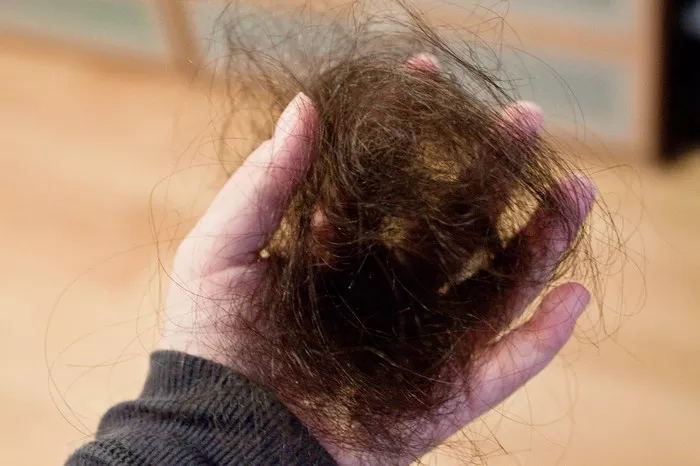Hair loss can be a distressing experience, impacting one’s self-confidence and quality of life. As a result, many individuals seek solutions to restore their hair and regain their youthful appearance. Hair transplant has emerged as a popular and effective option for addressing hair loss. However, it is essential to understand that like any medical procedure, hair transplants come with their set of expectations and outcomes. In this article, we will explore the success rate of hair transplants and debunk the myth of a 100 percent success rate.
Understanding Hair Transplant Procedure
A hair transplant is a surgical procedure that involves the transfer of hair follicles from one part of the scalp (known as the donor site) to another area with thinning or balding hair (recipient site). There are two primary techniques used in hair transplants: Follicular Unit Transplantation (FUT) and Follicular Unit Extraction (FUE). Both methods aim to achieve natural-looking results by harvesting and transplanting hair follicles meticulously.
Is Hair Transplant 100 Percent Successful?
Hair transplant procedures are highly effective in restoring hair and addressing hair loss concerns, but they are not 100 percent successful. While hair transplants can yield significant and natural-looking results, there are several factors that can influence the outcome, such as patient suitability, surgeon skill and experience, the type and severity of hair loss, and post-operative care. It is essential for individuals considering a hair transplant to have realistic expectations and to consult with a qualified and experienced hair transplant surgeon who can provide an honest assessment of the potential outcomes. While hair transplants can greatly improve hair density and appearance, individual results may vary, and additional treatments or touch-up sessions may be necessary for some patients to achieve their desired results.
Factors Affecting Hair Transplant Success
The success of a hair transplant is influenced by various factors that should be taken into consideration:
1. Patient Suitability:
Not everyone is an ideal candidate for a hair transplant. The presence of adequate donor hair and overall scalp health are crucial factors in determining the success of the procedure.
2. Surgeon’s Skill and Experience:
The expertise and experience of the hair transplant surgeon play a significant role in achieving successful outcomes. A skilled surgeon will carefully plan and execute the procedure, maximizing the survival and growth of transplanted hair follicles.
3. Type and Severity of Hair Loss:
The extent of hair loss and the pattern of baldness can impact the feasibility and success of a hair transplant. Individuals with advanced stages of hair loss may have more limited donor hair, affecting the overall outcome.
4. Post-Operative Care:
Following the surgeon’s post-operative care instructions diligently is vital for the success of the transplant. Proper care promotes healing and ensures the grafts’ survival.
Effects of hair transplant in reality
While hair transplants can yield significant and natural-looking results, it is crucial to have realistic expectations. Contrary to the myth of a 100 percent success rate, hair transplants do have limitations and variations in outcomes. Here’s what you can expect:
1. Natural-Looking Results:
With a skilled surgeon and appropriate patient selection, hair transplants can achieve natural-looking results that blend seamlessly with existing hair.
2. Hair Growth Timeline:
After the procedure, transplanted hair will shed in the weeks following surgery. This is a normal part of the process, and new hair growth will begin gradually in the coming months.
3. Density and Coverage:
The degree of hair density achieved through a transplant may not match the density of natural hair. The surgeon will work to achieve the best coverage possible based on available donor hair.
4. Additional Treatments:
In some cases, individuals may require additional treatments or touch-up sessions to enhance the results further.
What should someone considering a hair transplant do?
To manage expectations effectively, individuals considering a hair transplant should:
1. Consult a Qualified Surgeon:
Schedule a consultation with a qualified and experienced hair transplant surgeon. They will assess your hair loss condition, discuss suitable options, and set realistic expectations based on your unique situation.
2. Discuss Potential Outcomes:
Have an open and honest conversation with your surgeon about the expected outcomes and potential limitations of the procedure.
3. Review Before-and-After Photos:
Request to see before-and-after photos of previous patients to gain a better understanding of the achievable results.
4. Follow Post-Operative Care:
Adhere to the surgeon’s post-operative care instructions to ensure the best possible results.
Conclusion
Hair transplants offer an effective solution for hair loss, with the potential to provide natural-looking and satisfying results. However, it is essential to dispel the myth of a 100 percent success rate. The success of a hair transplant depends on several factors, including patient suitability, surgeon skill, and post-operative care. Managing expectations and having realistic discussions with a qualified hair transplant surgeon is crucial to achieving the best possible outcomes. While hair transplants can significantly improve hair density and appearance, it is essential to remember that individual results may vary. By choosing a reputable surgeon and understanding the intricacies of the procedure, individuals can make informed decisions and embark on their hair restoration journey with confidence.


